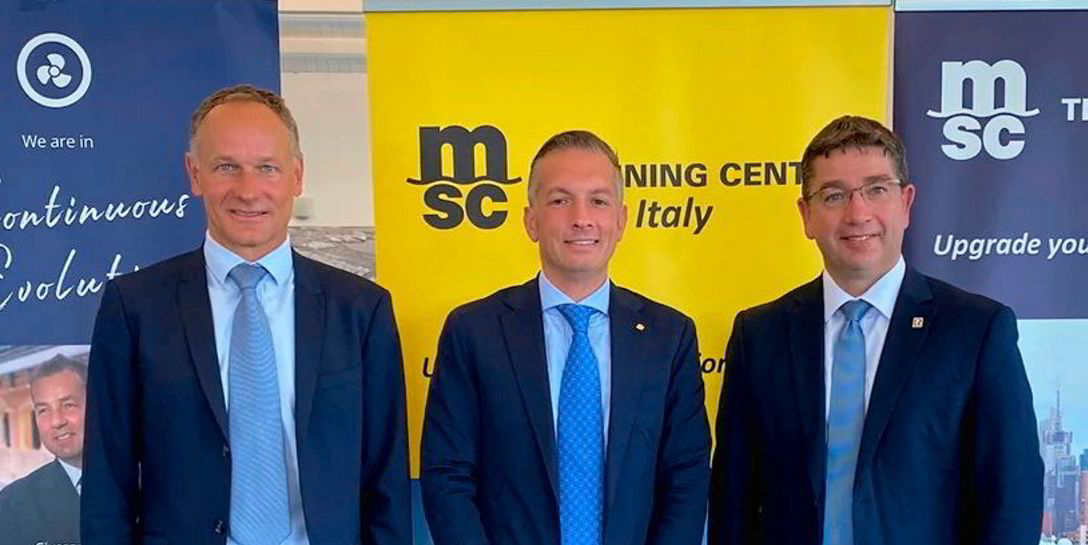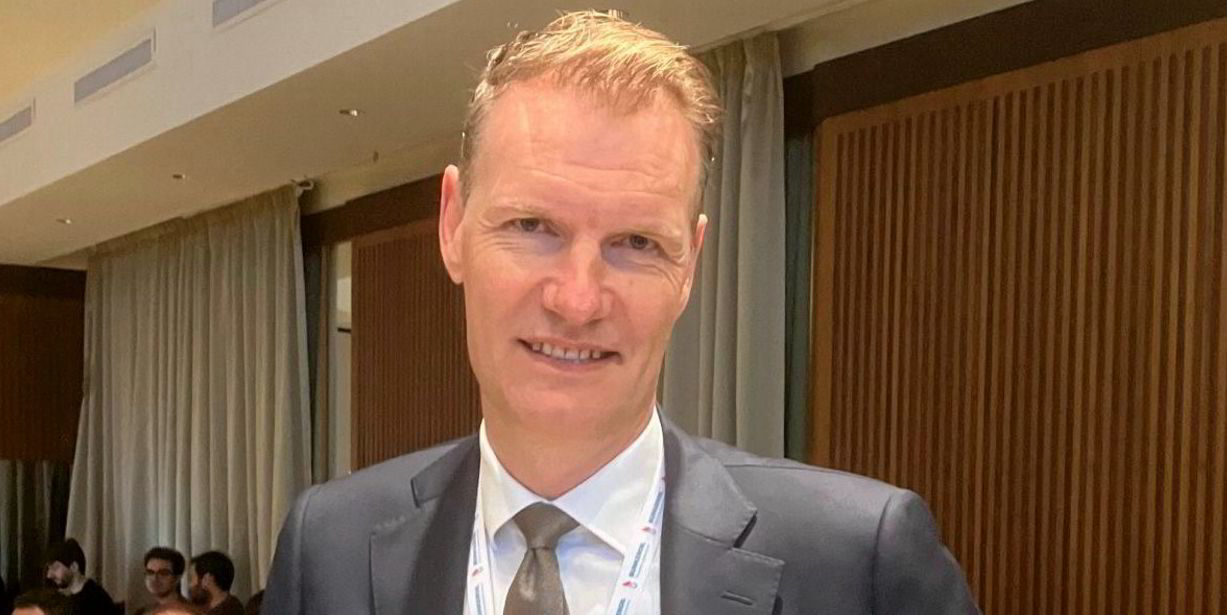MSC Mediterranean Shipping Company has thrown its weight behind a project to design an ammonia dual-fuelled container ship.
The leading liner outfit is teaming up with three partners to plot the design of an 8,200-teu dual-fuel vessel.
The aim is to give MSC the option of adopting ammonia as a zero-carbon main propulsion fuel for future newbuilding contracts.
Partners include classification society Lloyd’s Register, the Shanghai Merchant Ship Design & Research Institute (SDARI) and energy manufacturer MAN Energy Solution.
The four companies have signed a memorandum of understanding for technical specifications for a variant of SDARI’s twin island, 8,200-teu container ship design.
Giuseppe Gargiulo, head of newbuilding for MSC, said the project will evaluate “if zero carbon fuels like ammonia can be safely adopted and the impact they will have on vessel operation”.
SDARI will prepare the specification and design documentation of the ammonia dual-fuel variant.
“Projects like this are vital for helping us evaluate the risks and opportunities of using ammonia for propulsion and for sharing these learnings across the maritime supply chain,” SDARI chief technical officer Wang Gangyi said.
Promising fuel
Increasingly seen as one of the most promising alternative fuels for long-distance transportation, ammonia emits no CO2 when it is burned — although there are concerns over its toxicity.
Lloyd’s Register will verify that the design conforms with safety standards and rules relating to the usage of ammonia as a marine fuel.
“The application of ammonia as a marine fuel for the container ship sector will be crucial for our industry to achieve the emission-reduction targets set by the IMO and this cross-supply chain collaboration marks a vital step in the maritime industry’s energy transition,” Nick Brown, chief executive of Lloyd’s Register, said.
MAN Energy will deliver data for the engine design and ammonia fuel supply and emission-abatement systems.
“In order to meet the decarbonisation objectives of our industry on time, we need to look closely at all fuel solutions,” Bjarne Foldager, head of two-stroke at MAN Energy, said.





